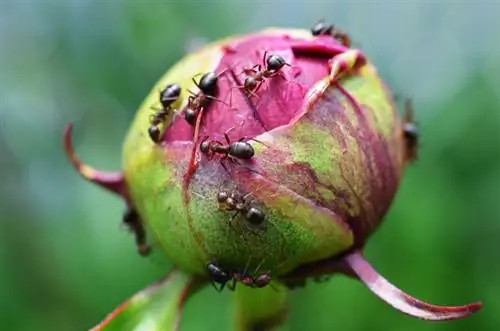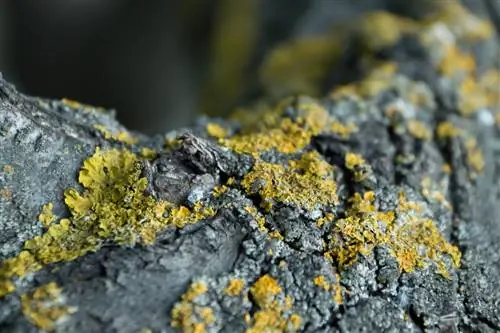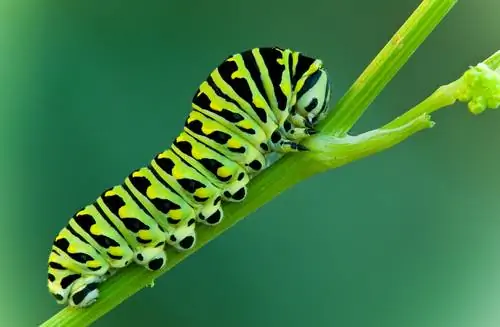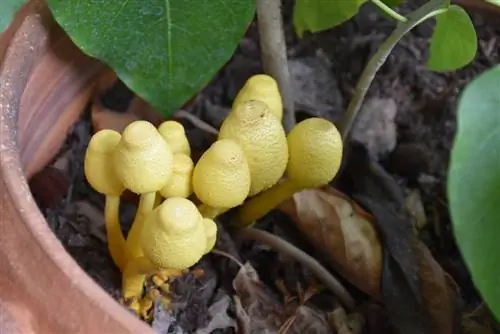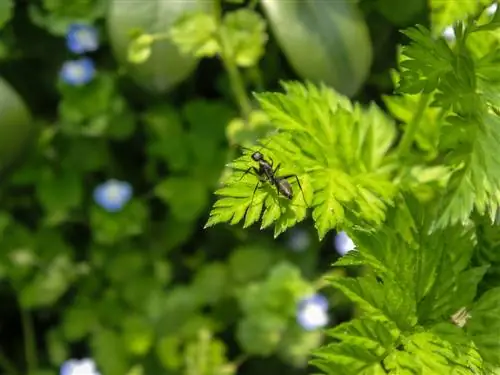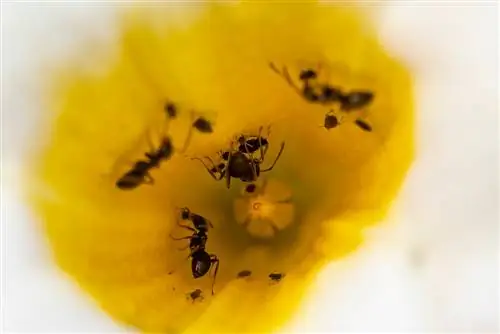- Author admin [email protected].
- Public 2023-12-16 16:46.
- Last modified 2025-01-23 11:20.
They run up and down the stems. Most of the time they cling to the buds that are still closed in masses. Ants like to crawl wildly when they come across a peony that is about to bloom. But what do they want from her?
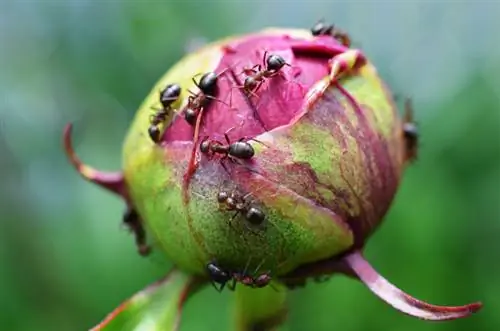
Why are there ants on peonies?
Ants are attracted to peonies because they secrete a sweet sugary juice just before they bloom, which is tempting to ants and other insects. However, the ants do not directly harm the peony and can even contribute to the natural reproduction of the plant.
Sugar water that attracts ants
Tellingly, just before the peony flowers bloom, a slimy sugary juice drips down from them. Ants are less attracted to flower color. They are keen on the sugar juice. It arises from the sepals and is crystallized. It is secreted by peonies via fine hairs before the flowers open.
Sometimes the amount of sugar is so large that the plant literally sticks. If you want to use the flowers as cut flowers, you are often surprised that the flowers don't open at all - they are too glued together.
The whole thing is a little reminiscent of the well-known honeydew secretions of aphids, which ants also like to eat. But it's not just ants rushing to feast on sugar. Other insects also like this sugar juice.
The ants do not harm the peony
Basically, the ants (no matter how many) do not harm the peony. They are also not necessarily an indication of an aphid infestation like they are on other plants in the garden. However, it is admittedly not particularly pleasant if you want to use the flowers colonized by ants for vase cutting
Sometimes ants spread fungal diseases
Here are a few more tips:
- Ants can spread fungal spores
- It is not uncommon for them to spread gray mold spores from one plant to another
- They can also spread aphids
- If necessary, fight aphids with a soft soap solution (€4.00 on Amazon)
- Fight gray mold by removing diseased plant parts
With pot culture the 'problem' doesn't happen
If you decide to plant your peony in a container, you will most likely not find ants on the flowers. The bucket forms a barrier. Such a bucket is usually placed on a balcony or terrace, where ants are rarely found.
Tip
The ants also like to spread the seeds of the peony and thus contribute to natural reproduction in different locations.

